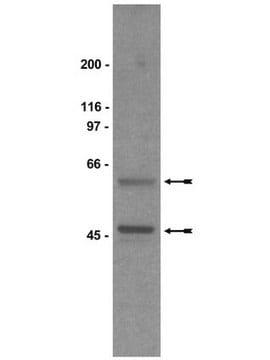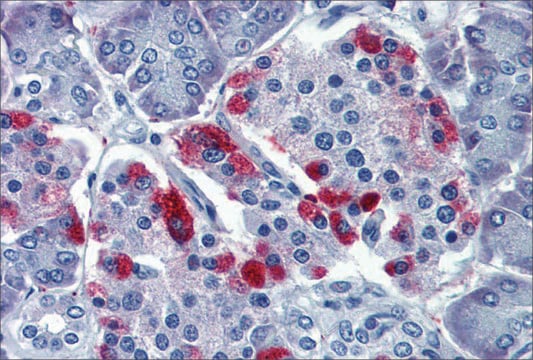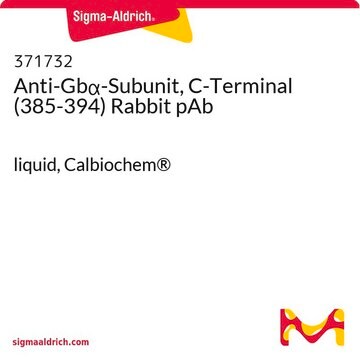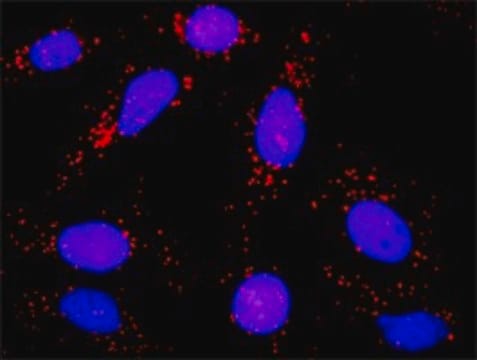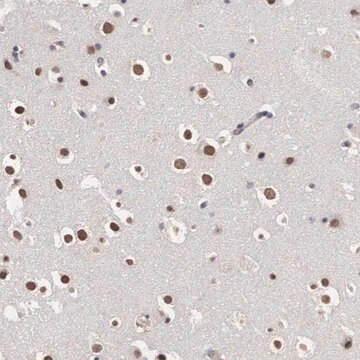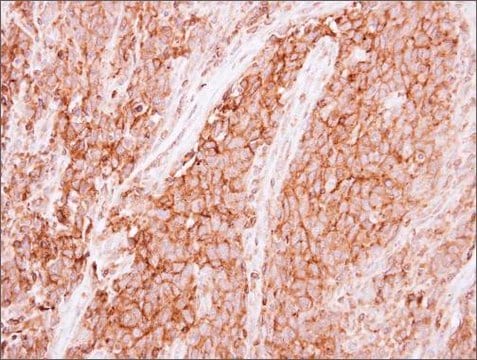MABN543
Anti-Gs protein Antibody, alpha subunit, clone N192/12
clone N192/12, from mouse
Synonyme(s) :
Guanine nucleotide-binding protein G(s) subunit alpha isoforms short, Adenylate cyclase-stimulating G alpha protein
About This Item
Produits recommandés
Source biologique
mouse
Niveau de qualité
Forme d'anticorps
purified antibody
Type de produit anticorps
primary antibodies
Clone
N192/12, monoclonal
Espèces réactives
rat, human
Réactivité de l'espèce (prédite par homologie)
bovine (immunogen homology)
Technique(s)
western blot: suitable
Isotype
IgG1κ
Numéro d'accès NCBI
Description générale
Spécificité
Immunogène
Application
Neuroscience
Developmental Signaling
Qualité
Western Blotting Analysis: 2.0 µg/mL of this antibody detected GS protein, alpha subunit in 10 µg of rat brain membrane tissue lysate.
Description de la cible
Forme physique
Stockage et stabilité
Remarque sur l'analyse
Rat brain membrane tissue lysate
Autres remarques
Clause de non-responsabilité
Vous ne trouvez pas le bon produit ?
Essayez notre Outil de sélection de produits.
Code de la classe de stockage
12 - Non Combustible Liquids
Classe de danger pour l'eau (WGK)
WGK 1
Point d'éclair (°F)
Not applicable
Point d'éclair (°C)
Not applicable
Certificats d'analyse (COA)
Recherchez un Certificats d'analyse (COA) en saisissant le numéro de lot du produit. Les numéros de lot figurent sur l'étiquette du produit après les mots "Lot" ou "Batch".
Déjà en possession de ce produit ?
Retrouvez la documentation relative aux produits que vous avez récemment achetés dans la Bibliothèque de documents.
Notre équipe de scientifiques dispose d'une expérience dans tous les secteurs de la recherche, notamment en sciences de la vie, science des matériaux, synthèse chimique, chromatographie, analyse et dans de nombreux autres domaines..
Contacter notre Service technique